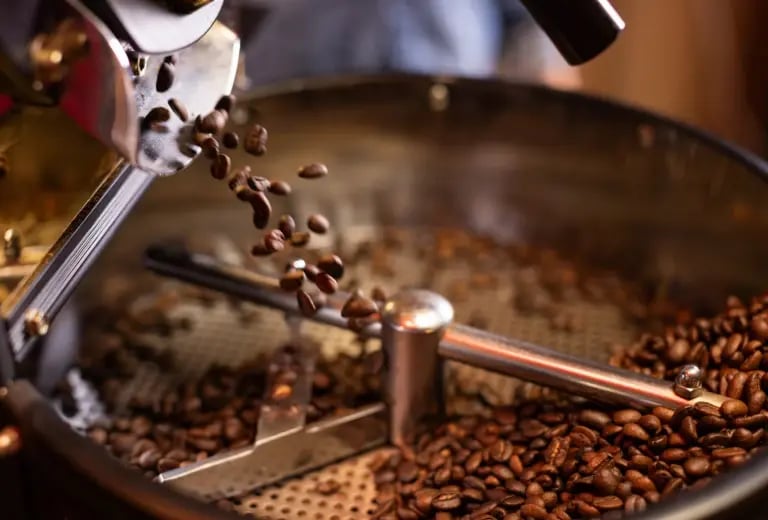
the future of trade
DMCC FUTURE OF TRADE AGRI SERIES - COFFEE EDITION
In the second edition of our Agri Commodity series, we explore the shift in the global coffee market driven by climate change, supply chain pressures, and the emergence of new markets and consumer trends, with hubs like Dubai leading the transition in the future of coffee trade.
Reports in the Five-Part Agri Commodities Series:
REDEFINING COFFEE AS A GLOBAL ECONOMIC PILLAR
As a global economic driver, the coffee industry is facing profound transformations.
The way coffee is produced, traded, and consumed is being affected by climate volatility, supply chain pressures and shifting consumer preferences.
Explore how evolving coffee cultures, emerging markets, and climate uncertainty are driving innovation throughout the coffee supply chain.
COFFEE AS A TRADEABLE COMMODITY
COFFEE MARKET DYNAMICS
EMERGING CHALLENGES
VALUE CHAIN SHIFT
DUBAI: GLOBAL COFFEE TRADE HUB
COFFEE INNOVATION
01
COFFEE TRADE SNAPSHOT
Download report
As one of the world's most popular beverages, the value of world trade in coffee is estimated at over $26 billion. It is a truly global commodity - connecting producers in Latin America, Africa and Asia with consumer markets in Europe, the United States and, increasingly, China. On the buyer's side, coffee culture is evolving rapidly. Consumers are demanding signature regional styles, such as Vietnamese or Turkish coffee, while also driving growth in premium brewing equipment, specialty pods, and high-end capsules.
02
COFFEE MARKETS FACE CRITICAL VOLATILITY
Download report
Coffee bean supply chains are highly vulnerable to weather events such as droughts and frosts, which can lead to drastic increases in global coffee prices. Amid the volatility is a surge in the consumption of specialty coffee, with consumers increasingly appreciating the care and craftsmanship behind high-quality coffee that is sourced ethically and organically. This has created new market pressures, as farmers now face heightened expectations for organic certifications and sustainable practices.
03
TRADE NETWORK TRANSFORMATIONS
Download report
Coffee is creating fully functioning economies as producer countries promote domestic consumption and grow regional trade networks. Historically, these countries served as raw material suppliers to the Global North, but increasingly consumer bases can be found within producer nations themselves. This has stimulated job creation throughout the value chain, from roasting and packaging to distribution and retail.
04
DUBAI’S ROLE IN THE FUTURE OF COFFEE TRADE
Download report
The coffee scene in Dubai is now dominated by small, independent stores offering specialty coffee products, as consumers have a far deeper understanding of what defines high-quality coffee. On the logistics side, Dubai holds the power to facilitate global shipments, given its centrality within the top five coffee-producing countries. With local market strength and geographical centrality, Dubai is poised to become the next coffee powerhouse.
05
INNOVATION DRIVING NEW FORMS OF PRODUCTION AND TRADE
Download report
The coffee industry has long realised the resource-intensive nature of coffee production, pushing the innovation of new sustainability-focused initiatives like agroforestry and drought-resistant coffee beans as solutions. Meanwhile, digital trade finance solutions and e-commerce are supporting more seamless trade, and blockchain and AI are pioneering greater traceability and efficiency solutions across the supply chain.
CASE STUDY: DUBAI’S JOURNEY FROM AN EMERGING HUB TO THE GLOBAL COFFEE CAPITAL
In a region where coffee culture is increasingly defining social interaction, Dubai has strategically positioned itself as the next global coffee capital.
Market Transformation
Independent and specialty coffee shops have gained significant ground over large European chains in the past decade. Dubai consumers now demand freshly roasted coffee and can distinguish quality differences, driving local roasting investments as a genuine differentiator.

Infrastructure Impact
The DMCC Coffee Centre houses over 300 members across the global coffee value chain, offering professional services including temperature-controlled storage, roasting, packaging, and remote tasting capabilities.
Trade Platform Innovation
DMCC’s Tradeflow platform connects African producers directly with buyers, requiring physical inspection and storage at Dubai facilities before ownership transfer.
Partnership Network
Collaborations between key Dubai entities and regional and national producers have increasingly positioned the emirate as the trade gateway connecting suppliers and buyers across the global coffee market..
THE FUTURE OF COFFEE
Key Recommendations
- Empower coffee producer nations
Build resilient coffee economies by expanding farmer training and cooperative structures that give smallholders adaptive capacity and stronger market positioning. Local roasting, branding, and consumption initiatives should be supported to develop domestic markets, enabling producing countries to capture more value from their coffee rather than serving as raw material suppliers. - Drive global coffee trade and innovation through industry clustering
Enhance connectivity between producer and consumer markets by leveraging free zone and trade infrastructure for consolidation and distribution. Dedicated hubs such as DMCC Coffee Centre can also support industry clustering for greater innovation and pooling of knowledge, expertise and capabilities to pioneer new industry solutions - Digitise coffee trade operations
Support the rollout of digital marketplaces, blockchain traceability systems, and AI monitoring technologies to streamline transactions and build verifiable trust across the entire supply chain from farm to consumer. - Integrate sustainability standards
Build sector-wide environmental resilience through strategic investment in climate-smart agriculture, circular economy solutions, and regulatory compliance frameworks. This spans three key areas: climate-smart farming practices, circular economy initiatives, and regulatory compliance with standards like the EU Deforestation Regulation.




